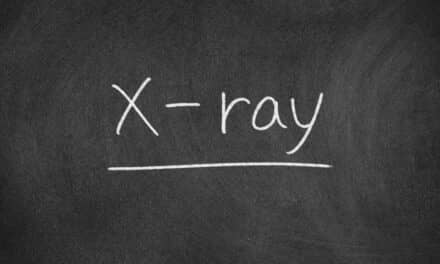The Radiological Society of North America (RSNA) and the RSNA COVID-19 AI Task Force announce that the first annotated data set from the RSNA International COVID-19 Open Radiology Database (RICORD) has been published by The Cancer Imaging Archive (TCIA).
The COVID-19 pandemic is a global public health crisis. Although prediction models for COVID-19 imaging have been developed to support medical decision making, the lack of a diverse annotated data set has hindered the capabilities of these models. RSNA launched RICORD in mid-2020 with the goal of building the largest open database of anonymized COVID-19 medical images in the world. It is being made freely available to the global research and education communities to gain new insights, apply new tools such as artificial intelligence and deep learning, and accelerate clinical recognition of this novel disease.
Created through a collaboration between RSNA and the Society of Thoracic Radiology, the initial group consists of 120 COVID-19 positive chest CT images from four international sites.
“RSNA was able to draw on relationships established from prior machine learning challenges to quickly put together a COVID-19 AI Task Force,” says Carol Wu, MD, a radiologist at MD Anderson Cancer Center and a member of the RSNA task force. “Contributing sites, already proficient at sharing data with RSNA, were able to quickly process necessary legal agreements, identify suitable cases, perform image de-identification and transfer the images in record speed.”
The image data was then annotated with detailed segmentation and classification labels. The label schema is based on guidelines outlined in the “Radiological Society of North America Expert Consensus Document on Reporting Chest CT Findings Related to COVID-19: Endorsed by the Society of Thoracic Radiology, the American College of Radiology, and RSNA” published in Radiology. Two teams of radiologists led by Scott Simpson, DO, of the University of Pennsylvania, and Emily Tsai, MD, of Stanford University, completed the painstaking and invaluable annotation project.
This data set represents the first published component of RICORD, and RSNA’s first contribution to the Medical Imaging and Data Resource Center (MIDRC), a consortium for rapid and flexible collection, artificial intelligence analysis and dissemination of imaging and associated data. Jointly developed by RSNA, the American College of Radiology and the American Association of Physicists in Medicine, MIDRC is funded by the National Institute of Biomedical Imaging and Bioengineering and hosted by the University of Chicago.
“RSNA is extremely proud to be part of the MIDRC effort,” says Curtis Langlotz, MD, PhD, RSNA Board liaison for information technology and annual meeting. “It will build a valuable repository of data for research to address the current pandemic and will serve as a model for how to collect and aggregate data to support imaging research.”
TCIA is a service provided by the National Cancer Institute (NCI) to the cancer imaging research community that de-identifies and hosts a large archive of medical images of cancer accessible for public download.
In recognition of the urgent need for access to COVID-19 related imaging data sets for research, NCI is dedicating a portion of TCIA resources to curate and host free and open access to imaging data from patients with COVID-19. RSNA partnered with TCIA to leverage the infrastructure and processes it has in place to make these data publicly available. These data will also be incorporated into MIDRC when its data platform is fully in place in early 2021.
Radiologists have played a pivotal role in managing the pandemic, particularly when other testing methods are unavailable or when clinicians seek imaging data to inform treatment decisions. The RSNA COVID-19 AI Task Force hopes that RICORD will serve as a definitive source for COVID-19 imaging data by combining the contributions and experiences of medical imaging specialists and radiology departments worldwide.
The RICORD data collection pathway enables radiology organizations to contribute data to RICORD safely and conveniently. It provides sites with guidance for data sharing and serves to standardize exam parameters, disease annotation terminology and clinical variables across these global efforts. Importantly, it connects to sustainable storage infrastructure via the U.S. National Institutes of Health.
The RSNA COVID-19 AI Task Force will continue to update and expand both the volume and variety of data available in RICORD. A collection of COVID-19 negative chest CT control cases is in the pipeline for publication soon, along with a labeled set of 1,000 COVID-19 positive chest x-rays. An even larger set of CT and x-ray images has been submitted to RICORD and is currently being processed.
Sites interested in learning more or contributing data should visit the RICORD resources page.






